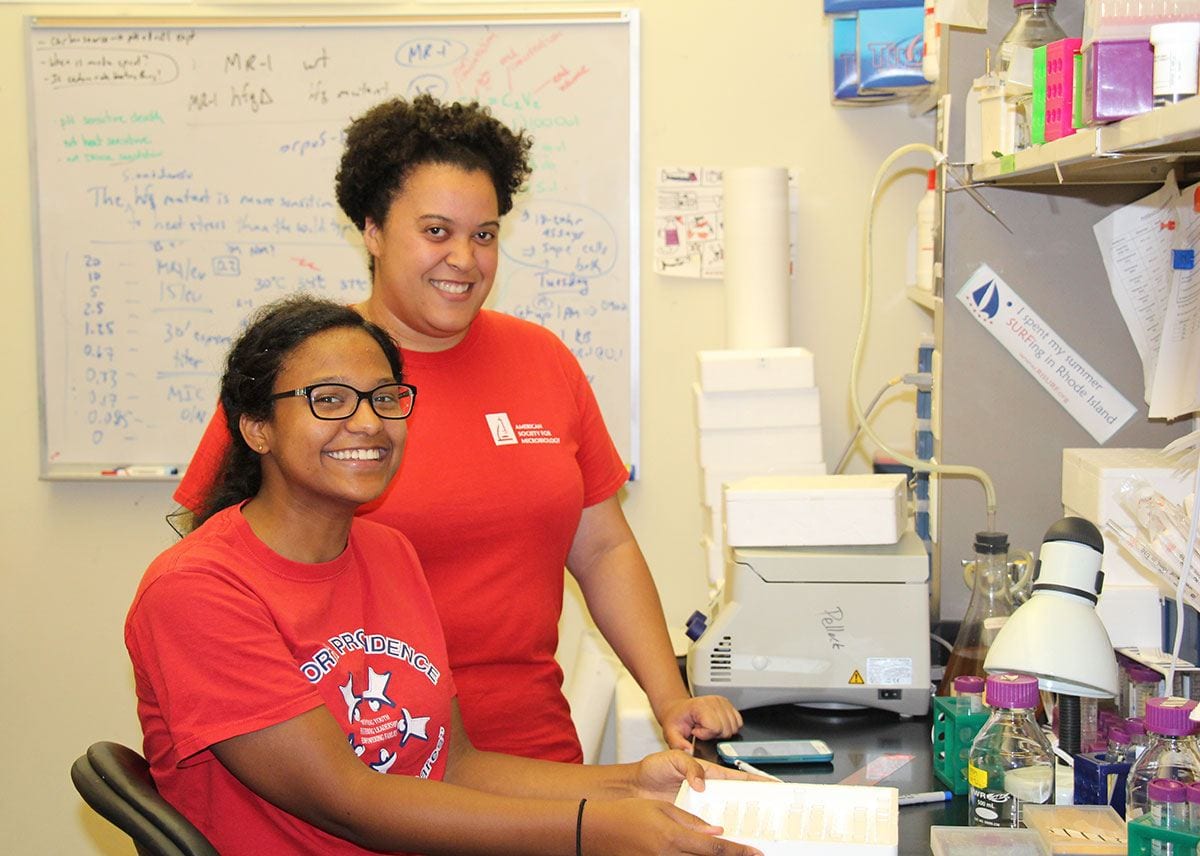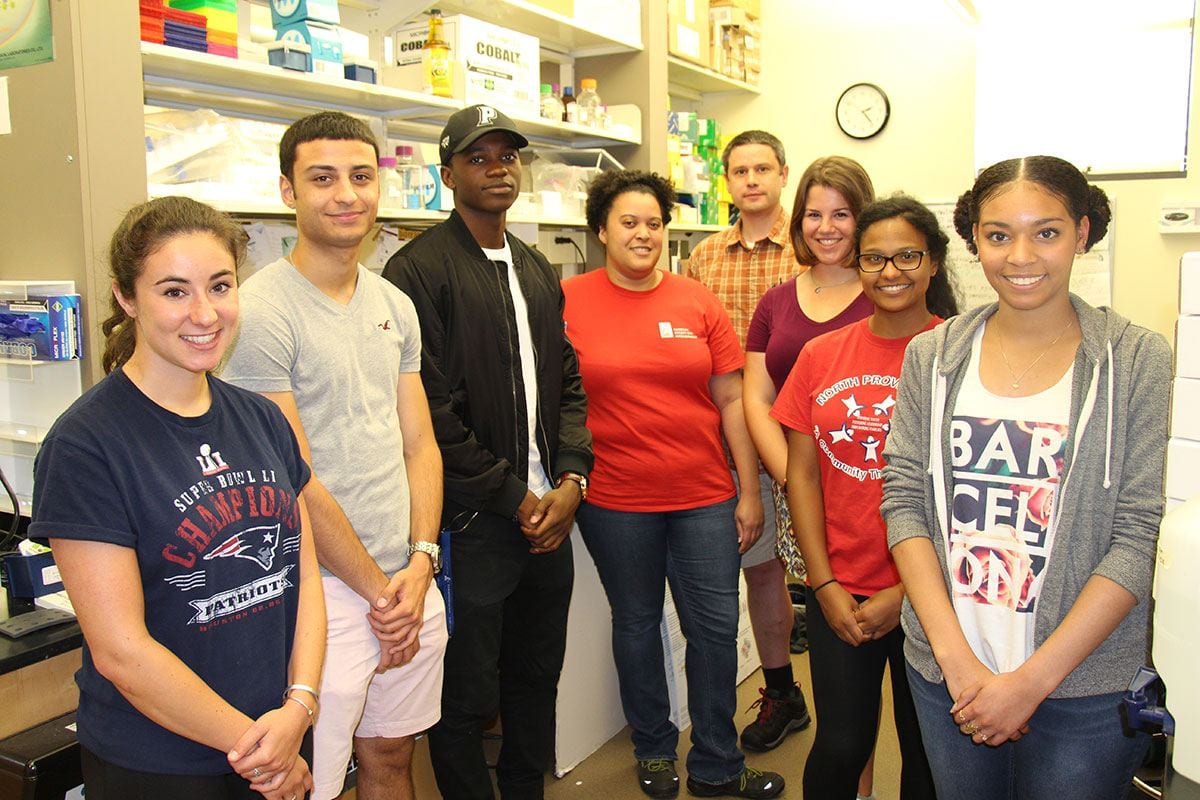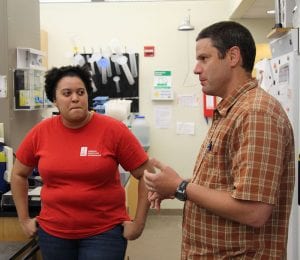Dr. Cara Pina, post-doctoral research fellow, works in lab with biology students

By Bridget Reilly ’20
Deep in the maze-like hallways of Providence College’s Hickey Hall, amid a constant hum from construction vehicles and activity, there is a biology lab, filled equally with 2000s pop music, chatter, and research students. In the middle of it all is Dr. Cara Pina, a post-doctoral research fellow as unique as her environment.
Pina arrived in January 2017, shortly after finishing her Ph.D. in molecular and cell biology at Brandeis University. The 18-month post-doctoral fellowship is designed to provide additional training before she pursues a faculty position. Pina is the first female, and the first person of color, to serve the College as a post-doctoral research fellow in the sciences. The Department of Biology and the Department of Chemistry and Biochemistry each has employed male post-doctoral fellows in recent years.
Pina works closely with Dr. Brett Pellock, associate professor of biology, and his students on research focused on bacterial stress responses. They analyze how cells that are starved for long periods of time survive, probing such questions as how they cope with stress and why some survive and others don’t. She also co-teaches the introductory biology course with Pellock and has taught a non-majors microbiology course.

Pellock said that having a post-doctoral fellow to teach and conduct research with students sharply enhances the mentoring experience for them. It is particularly effective when it comes to working in the lab, including during the summer when there is a select group of students doing research.
“Cara steps up. She really runs the lab,” said Pellock. “She has been a great addition to my lab, the biology department, and to Providence College. She has formed quite a few relationships that are enriching the College. In addition, this is an important training experience for her.”
Students say Pina truly acts as a mentor and a teacher in the lab, from answering questions to giving advice.
“Cara is so fun to work with,” said Megan Berube ’20 (Attleboro, Mass.), who noted Pina fits in naturally in Pellock’s lab, where research is balanced with lighthearted banter.
Pellock said Pina’s close relationship with students is having a significant impact on their educational experience. He cited two examples. One student with whom Pina has worked, Nicole De La Rosa ’18 (North Providence, R.I.), presented a research poster at the SACNAS (Society for Advancement of Chicanos/Hispanics and Native Americans in Science) National Diversity in STEM Conference in Utah during the Fall 2017 semester. Pina also is mentoring a small group of women of color who are biology students.

“Cara’s work more than doubles what I’m able to do,” said Pellock.
Pina, meanwhile, said she has been “very well received” at PC and has had “the unique opportunity to work with faculty and advocate for students directly.” One of the things she enjoys most is teaching research skills to undergraduates — a point underscored in Pellock’s lab, where she finds the students eager to embrace new research methods and ask questions.
“It is really wonderful to watch students take what they’ve learned in their courses and gain hands-on experience understanding how what they are doing relates to research questions in the field,” said Pina.
She also said it is “really wonderful to have the opportunity” to research and teach at an undergraduate institution. It is rewarding both for her and her students, she said.
“Scientific research can look very different, depending on where you are doing it, and this is a new setting for me,” said Pina. “Having the chance to do research and answer big questions here means I can gain experience tailoring research projects to undergraduate students. I can better provide them with focused research goals that are both exciting and complement their level of academic advancement.”





